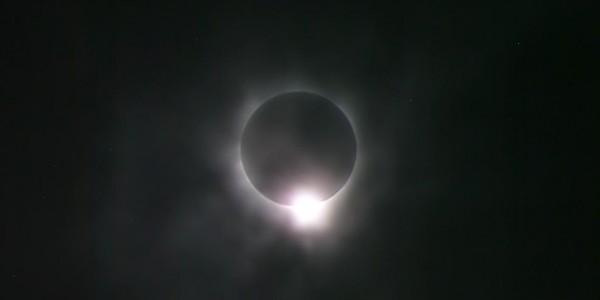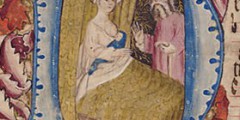Nicola Royan
View this author's profilePosts by Nicola Royan
Eclipses and comets and portents (oh my)
March 18, 2015
Contrary to popular opinion medieval people did not think that the world was flat. Educated people worked on an Aristotelean idea that the world was round and that it had different zones (including places that were either too hot or too cold to live in). However, medieval people, just in Antiquity, did not know that …
‘þe best mylke is womman milke’: Does Breast Milk Heal? – Guest post by Erin Connelly
July 23, 2014
On a recent episode of GPs: Behind Closed Doors (Channel 5), a reality show that examines doctor-patient relationships, a young mother told her GP that she had been treating her infant’s conjunctivitis with breast milk. The GP was surprised by this treatment and advised against it, stating that it was both ineffective and unpleasant. However, …
Rethinking Ravenna: review
April 10, 2014
A guest post by Maroula Perisanidi, postgraduate student in History ‘Our royalty is an imitation of yours, modelled on your good purpose, a copy of the only empire, in so far as we follow you we excel all other nations’ These are the terms used by Cassiodorus on behalf of King Theoderic (493–526) to express …
A chilly spring?
March 27, 2014
Ane doolie sessoun to ane cairfull dyte doolie: doleful; dyte: story Suld correspond and be equiualent. Suld: should. So begins Robert Henryson’s The Testament of Cresseid, a story of what happened to Cresseid (or Criseyde or Cressida, depending on your preferred version) after she left Troy. Henryson’s …
Ross Balzaretti, Thinking about Ravenna
March 7, 2014
A guest blog by Dr Ross Balzaretti, History, University of Nottingham Judith Herrin is one of those (all too rare) historians who asks and answers unexpected questions, and her forthcoming IMR lecture ‘Rethinking Ravenna: The Ostrogothic Inheritance’ (5.30pm, 27 March 2014, A41, Clive Grainger Building, University Park) will no doubt do just that. I am …
Older Scots and Middle English: mutually comprehensible dialects?
February 24, 2014
The witticism that Britain and the US are countries divided by a common language might equally apply to Scotland and England. To avoid too much controversy, I am neither going to attribute the thought, nor am I going to discuss contemporary linguistic matters, but instead limit my discussion here to the fourteenth, fifteenth and sixteenth …
Love: not for the faint-hearted?
February 14, 2014
The lyf so short, the crafte so longe to lerne, Th’assay so harde, so sharpe the conquerynge The dredful joy, that alwey slyd so yerne Al this meene I be love, that my felynge Astonyeth with his wonderful worchyng So soore ywys, that whan I on hym thynke, Nat wote I wel wher that I …
Past identities: medieval differences between Scotland and England
January 21, 2014
The photo attached to this blog can be replicated in many family albums. The girls here happen to be my goddaughter and her sister, on their way to visit friends and family in Scotland, but they might equally be my children on the same mission north. There remains a slight sense of travelling to a …
Gawain’s New Year trials
January 13, 2014
Many of us will have ‘enjoyed’ Christmas games over the holiday. Some of these will have become family traditions, others will have arrived on Christmas Day, and in the process of playing them, there’s a fair chance that the players will have discovered something about themselves and about the other players. No matter how tensely …


